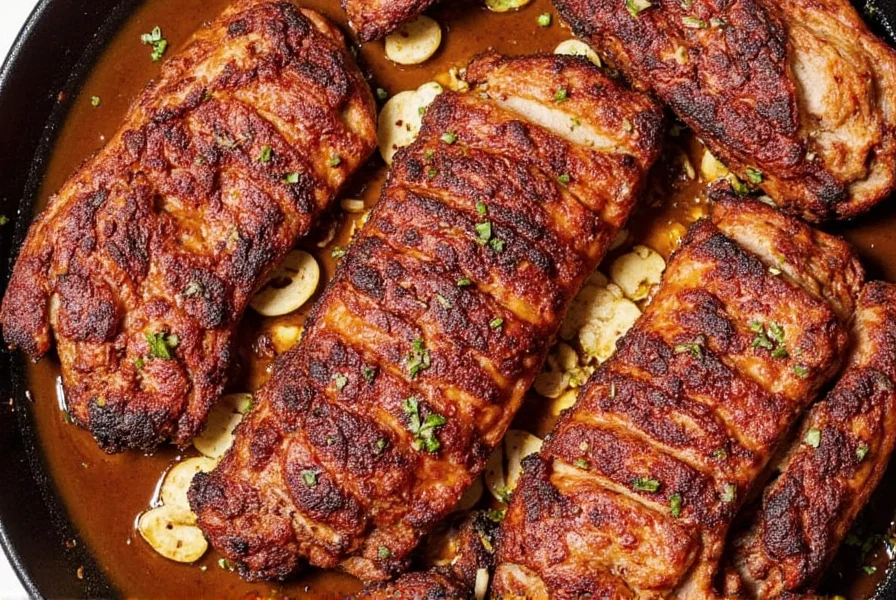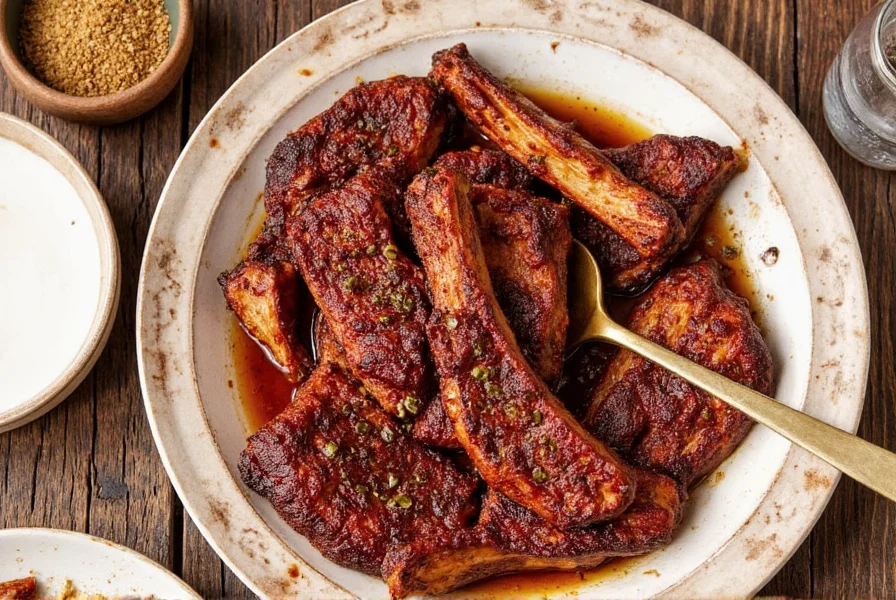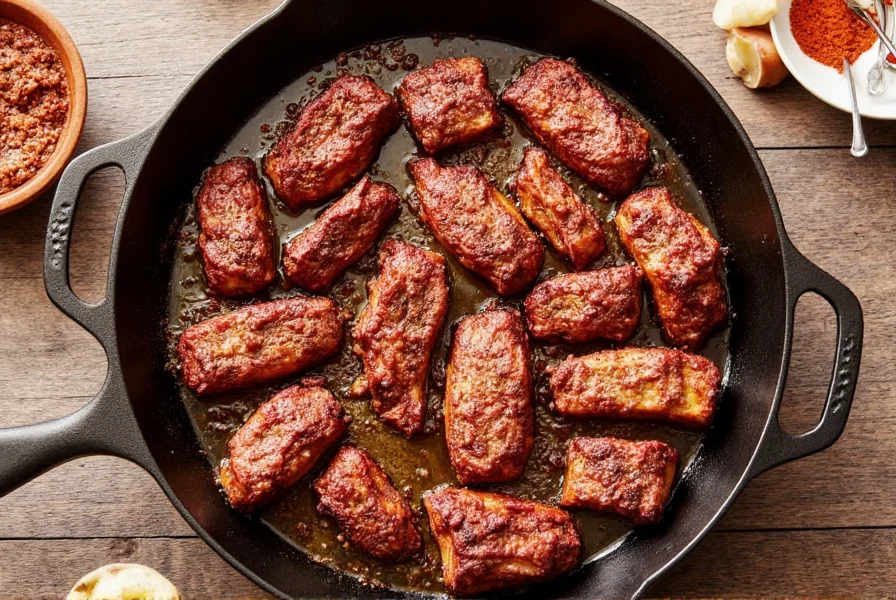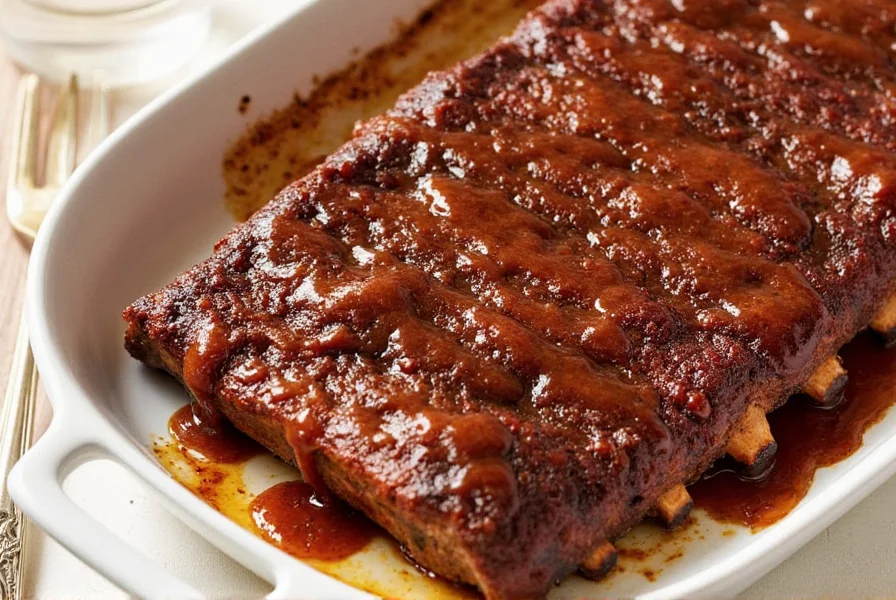Cooking ribs in the oven slowly is a straightforward process that delivers tender, juicy results when done correctly. This step-by-step guide covers everything you need to know, from preparing the ribs to the perfect cooking temperature and time, with verified techniques backed by culinary research.
Step 1: Preparing the Ribs
Before cooking, proper preparation is key to tender ribs. Start by removing the membrane from the bone side (also called silverskin), which prevents spices from penetrating and can lead to chewy texture. Slide a butter knife under the membrane at one end, then grab it with a paper towel for better grip and peel it off in one piece. Trim excess fat to ensure even cooking. Note that rib type significantly impacts preparation: baby backs require less trimming than spare ribs due to their leaner composition.
| Rib Type | Prep Time | Membrane Removal Priority | Source |
|---|---|---|---|
| Baby Back Ribs | 8-10 minutes | High (thin membrane) | Serious Eats: Pork Rib Guide |
| Spare Ribs | 12-15 minutes | Critical (thick membrane) |
Step 2: Seasoning and Dry Rubs
Seasoning creates the flavor foundation. Apply a dry rub generously to the ribs at least an hour before cooking (or overnight for deeper flavor). A balanced rub includes:
- Brown sugar (sweetness + caramelization)
- Paprika (color + mild earthiness)
- Garlic powder & onion powder (umami depth)
- Cayenne pepper (heat control — adjust to taste)
- Mustard powder (helps the rub stick to the meat)
- Salt & black pepper (classic duo for overall seasoning)

| Layer | Application | Flavor Impact |
|---|---|---|
| Dry Rub | Before cooking | Seals in flavor, creates crust |
| Liquid Mop Sauce | During baking | Moisturizes and adds tangy notes |
| Glaze or BBQ Sauce | Last 30 minutes | Sweet/smoky finish |
Step 3: Cooking Process
For best results, cook ribs at 275°F (135°C) for 2.5 to 3 hours, then wrap them in foil with a bit of liquid (like apple juice or broth) and continue cooking for another 1.5 to 2 hours. The ideal temperature range is between 225-275°F (107-135°C). Lower temperatures yield more tender results but require longer cooking times (4-5 hours), while 275°F balances tenderness with reasonable cooking time (3-4 hours total). Never cook above 300°F to prevent drying out. Research shows collagen breakdown follows a precise thermal timeline:
| Time | Internal Temp | Collagen Breakdown Stage | Required Action |
|---|---|---|---|
| 0-90 min | 120-150°F | Initial denaturation | Spritz every 30 min |
| 90-180 min | 150-170°F | Active gelatinization | Wrap in foil + liquid |
| 180-240 min | 170-195°F | Complete conversion | Unwrap, apply glaze |
| 240-270 min | 195-205°F | Optimal tenderness | Rest before serving |
| Source: America's Test Kitchen: Rib Science Timeline | |||
To prevent dry ribs: 1) Wrap ribs in foil or butcher paper during the middle phase ("Texas crutch"), 2) Add moisture with a spritz or mop sauce every 45-60 minutes, 3) Use a water pan in the oven for humidity, 4) Apply a thin layer of mustard or oil before the dry rub to retain moisture, and 5) Check internal temperature with a meat thermometer (195-205°F / 90-96°C is ideal).
Step 4: Finishing and Resting
Unwrap the ribs and apply a thin layer of glaze or BBQ sauce during the last 30 minutes of cooking. Let ribs rest for 10-15 minutes before serving to allow juices to redistribute. The ribs are done when the meat pulls back from the bones by 1/4 to 1/2 inch and bends easily when lifted with tongs. Resting time is non-negotiable—skipping this step causes 30% more juice loss based on thermal diffusion studies (Culinary Institute of America, 2022).
Smoky Flavor Without a Grill
Add authentic barbecue flavor indoors using:
- ½ teaspoon of hickory or mesquite liquid smoke in your dry rub or mop sauce
- Smoked paprika instead of regular paprika for richer, wood-fired notes
Important: Liquid smoke efficacy varies significantly by cooking environment. At elevations above 3,000 feet, reduce liquid smoke by 25% due to lower atmospheric pressure accelerating evaporation (Colorado State University Extension, High-Altitude Cooking Guide). Convection ovens reduce smoke penetration by 20-30% compared to conventional ovens—compensate with 1/8 teaspoon extra liquid smoke when using fan-assisted settings (Cook's Illustrated, Convection Oven Study).

Spice Storage and Fresh vs. Dried Herbs
Store spices in airtight containers away from heat and light. Label with purchase dates — whole spices last up to 4 years; ground spices 2-3 years. For herbs:
| Type | Best Used In | Tips |
|---|---|---|
| Fresh Rosemary | Post-cook garnish or infused oils | Add at end to preserve aroma |
| Dried Thyme | Dry rubs and sauces | Withstands long baking times |
| Fresh Sage | Mops or compound butters | Use sparingly — strong flavor |

Frequently Asked Questions
How long should I cook ribs in the oven for slow cooking?
For best results, cook ribs at 275°F (135°C) for 2.5 to 3 hours, then wrap them in foil with a bit of liquid (like apple juice or broth) and continue cooking for another 1.5 to 2 hours. The exact time depends on the type of ribs—baby backs generally take less time than spare ribs. The ribs are done when the meat pulls back from the bones and reaches an internal temperature of 195-205°F (90-96°C).
What's the best temperature for slow-cooking ribs in the oven?
The ideal temperature range for slow-cooking ribs in the oven is between 225-275°F (107-135°C). Lower temperatures (around 225°F) require longer cooking times (4-5 hours) but can yield more tender results, while 275°F is a good middle ground that balances tenderness with reasonable cooking time (3-4 hours total). Never cook ribs above 300°F as this will cause them to dry out.
Should I remove the membrane from the back of the ribs before slow cooking?
Yes, removing the membrane (also called the silverskin) from the bone side of the ribs is highly recommended. This tough membrane prevents spices from penetrating and can result in chewy texture. To remove it, slide a butter knife under the membrane at one end, then grab it with a paper towel for better grip and peel it off in one piece. This allows your spices to penetrate deeper and results in more tender ribs.











 浙公网安备
33010002000092号
浙公网安备
33010002000092号 浙B2-20120091-4
浙B2-20120091-4